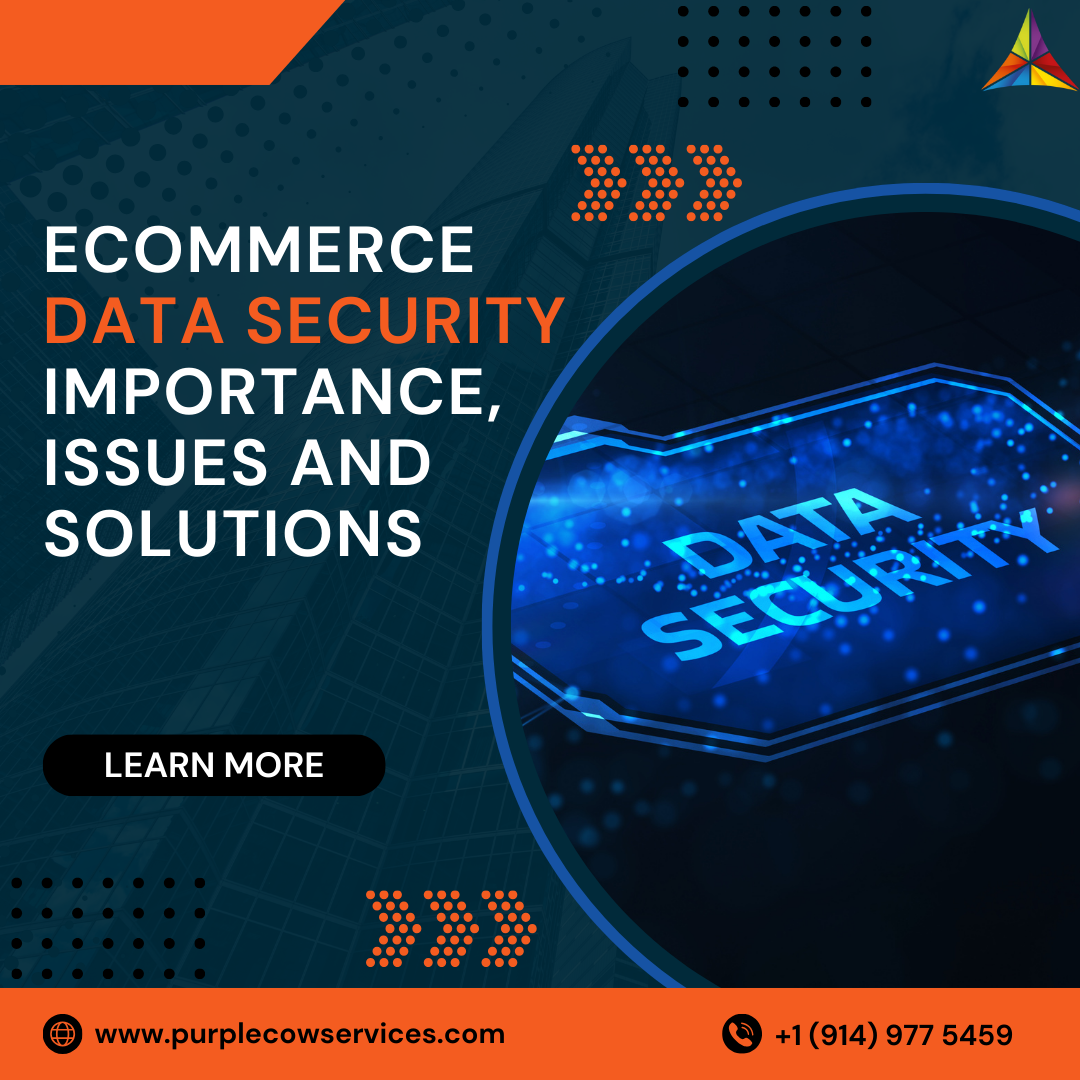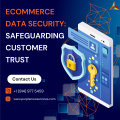In today’s digital age, where eCommerce has become the lifeblood of countless businesses, ensuring robust data security is paramount. This comprehensive guide delves into the importance of eCommerce data security, the issues that can arise, and the solutions to safeguard your online business effectively.
The Significance of eCommerce Data Security
In the realm of eCommerce, data security is not just a box to tick; it’s a strategic imperative. It encompasses the protection of sensitive customer information, financial transactions, and proprietary business data. Ensuring data security instills trust in your customers and preserves your brand reputation.
The consequences of data breaches can be severe, ranging from financial losses to legal repercussions and damage to customer trust. Consequently, businesses must prioritize eCommerce data security to thrive in the digital marketplace.
Common Threats to eCommerce Data Security
Understanding the threats that lurk in the digital landscape is crucial. One common threat is phishing attacks, where cybercriminals impersonate legitimate entities to steal user credentials. Another significant concern is ransomware, which can encrypt critical data until a ransom is paid. Additionally, SQL injection attacks can exploit vulnerabilities in web applications, potentially leading to data leaks.
Moreover, Distributed Denial of Service (DDoS) attacks can overwhelm your website with traffic, causing downtime and potentially masking more sinister activities. Staying vigilant against these threats is essential for robust eCommerce data security.
The Human Factor in Data Security
While advanced technologies play a crucial role in data security, human factors cannot be overlooked. Insider threats, whether intentional or accidental, can pose significant risks. It’s essential to educate employees about security best practices and implement access controls to restrict data access to authorized personnel.
Furthermore, social engineering tactics, such as pretexting and baiting, exploit human psychology to gain access to sensitive information. Training your staff to recognize and respond to these tactics is vital.
Regulatory Compliance and eCommerce
The regulatory landscape for data security is continually evolving. Businesses must navigate a complex web of regulations, including the General Data Protection Regulation (GDPR) and the California Consumer Privacy Act (CCPA). Failure to comply with these regulations can result in hefty fines and legal consequences.
To ensure eCommerce data security and regulatory compliance, businesses should implement data protection policies, conduct regular audits, and appoint data protection officers if required by law.
Data Encryption as a Defense
Data encryption is a fundamental pillar of eCommerce data security. It involves converting sensitive information into unreadable code, which can only be decrypted with the appropriate keys. This ensures that even if data is intercepted, it remains inaccessible to unauthorized parties.
Implementing Secure Sockets Layer (SSL) certificates for your website is a standard practice to encrypt data in transit. Additionally, end-to-end encryption for messaging and file sharing adds an extra layer of protection.
Multi-Factor Authentication (MFA)
To fortify access control, businesses should embrace multi-factor authentication. MFA requires users to provide two or more authentication factors, such as a password and a one-time code sent to their mobile device. This significantly reduces the risk of unauthorized access, even if passwords are compromised.
Implementing MFA for customer accounts and internal systems can thwart many cyberattacks, such as unauthorized logins and identity theft.
Regular Security Audits and Penetration Testing
Proactive measures are essential in eCommerce data security. Regular security audits and penetration testing help identify vulnerabilities and weaknesses in your systems before cybercriminals exploit them. These assessments provide valuable insights into your security posture, allowing you to take corrective actions promptly.
Engage with cybersecurity experts or ethical hackers to conduct thorough audits and penetration tests to ensure the resilience of your security infrastructure.
Employee Training and Awareness
Your employees are both your first line of defense and a potential weak link in eCommerce data security. Comprehensive training programs should educate employees about recognizing and responding to security threats. Additionally, fostering a culture of cybersecurity awareness can help employees become proactive in identifying and reporting potential risks.
Conducting simulated phishing exercises and providing ongoing security training can significantly enhance your organization’s resilience to cyber threats.
Incident Response and Recovery Planning
Despite all preventive measures, incidents can still occur. Having a well-defined incident response and recovery plan is crucial for minimizing damage and downtime. This plan should outline how to assess the severity of an incident, contain the breach, communicate with affected parties, and recover compromised data.
Regularly test your incident response plan to ensure its effectiveness, and update it to address emerging threats and vulnerabilities.
Conclusion
In the ever-evolving digital landscape, eCommerce data security remains a dynamic challenge. Businesses that prioritize data security not only protect their customers and brand but also gain a competitive advantage. By understanding the importance of data security, staying vigilant against common threats, and implementing robust security measures, you can fortify your eCommerce operations against the evolving threat landscape. In a world where data is a prized asset, safeguarding it is non-negotiable for sustained success.
Protect your eCommerce empire with Purple Cow‘s unmatched expertise in data security. Our professional team ensures your online business stays fortified against cyber threats, building trust with customers and safeguarding your reputation. With Purple Cow, you’ll have a solid defense against data breaches and compliance challenges, so you can focus on growing your eCommerce empire confidently.














